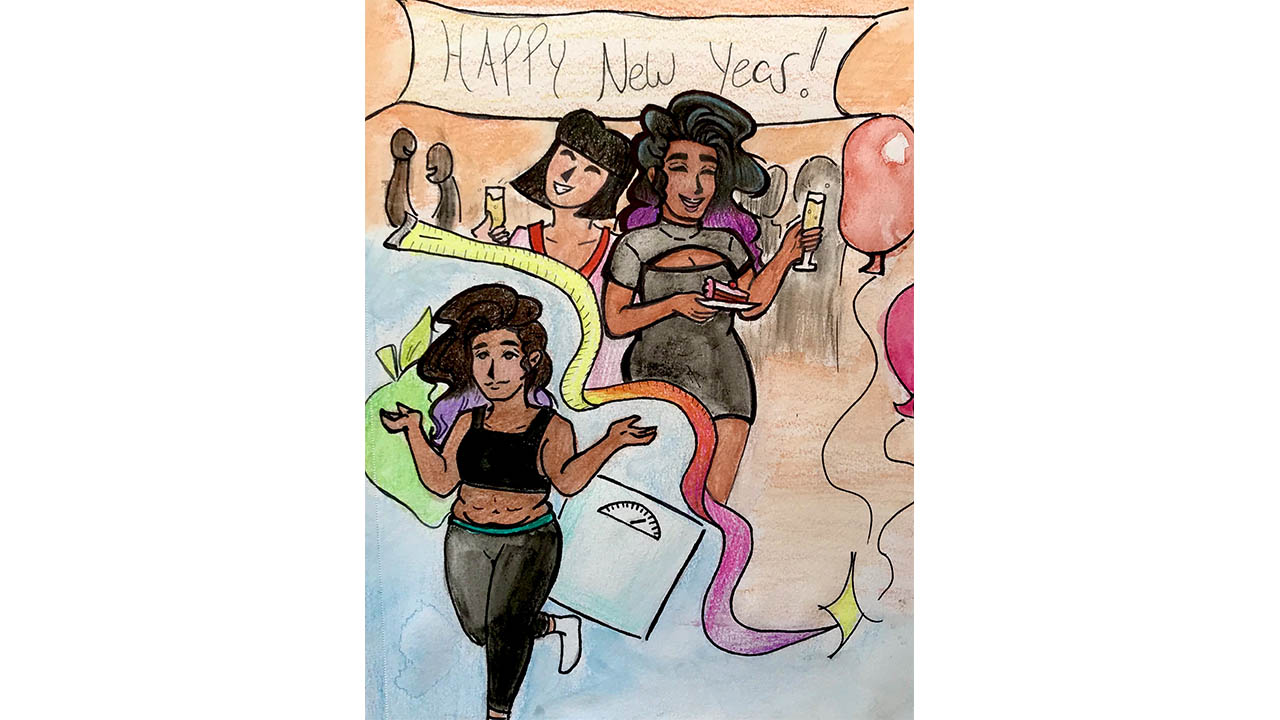Say no to diet culture in 2021
 CREDIT: CHEYENNE DOCKSTADER
CREDIT: CHEYENNE DOCKSTADERAs we cope with the pandemic, there's no shame in reprioritizing your weight loss goals.
As another January rolls around, diet companies are ramping up their advertising as millions make resolutions to get fit and lose weight. But this year, audiences are wising up.
Diet ads have grown evermore predatory in the age of social media. Influencers promote dangerous diet habits masquerading as health and nutrition, while even the most body positive users have been found guilty of promoting unhealthy diet trends (re: Lizzo). Not to mention the targeted advertisements by diet corporations that clutter up the Instagram timelines of primarily young women.
Day in and day out, especially around the new year, we are inundated by content telling us we’re not good enough, and that dieting is the answer. But we know better now; it’s well established that 95 per cent of diets fail. That’s because dieting is deliberately designed to be temporary and to create a cycle of shame and guilt that studies have shown do not lead to long-term wellness.
Nutritionist Karri Wilson believes there is a better way to tackle health and wellness, and it starts with acknowledging that all diets are toxic diets.
“It is a culture that is rooted in fatphobia, it is rooted in ‘thin equals healthy’ and it is very much just focused on profit,” she said.
That culture gets spread so vastly and discreetly on social media through sponsored content, that Wilson said your best bet is to purge your feed of any content that makes you feel bad about yourself.
“Detox that social media,” she said. “Go through your social media and get rid of accounts that emphasize that you’re not good enough in this body right now.”
She suggested unfollowing accounts that promote things like 1200-calorie diets (a calorie count appropriate for a toddler), videos like “what I eat in a day,” and before and after photos.
Having a plan to get healthy is not inherently a bad thing. But how do we navigate this vast abyss of information to find what works for our individual bodies? Wilson suggests listening to your body through something called intuitive eating.
“It’s about eating when we’re hungry and knowing what that feels like in our body,” she said. “We’re not eating by the clock, we’re not eating by a diet or a meal plan that tells us when and how much we need to eat.”
She explained that this means letting go of societal expectations surrounding food and getting back to the habitual tendencies we all have.
“It’s about coming home to your body,” said Wilson.
The same can be said for exercising. Physical activity is of course central to a healthy lifestyle, but pushing your body past its limits can have serious damaging effects over time. How you structure your workout plan should also be tied to intuition, pushing yourself as necessary, but also knowing when to pull back and rest. Generally, a half hour of increased cardiovascular activity a day is enough to keep your heart and lungs healthy.
This all goes without saying that at the end of the day, we are in the midst of a deadly pandemic which has now overlapped with the cold and often desolate winter months. Remember that there is no shame in weight loss falling a few notches down on your list of priorities. Instead of focusing your resolution on losing weight, hone in on gratitude, letting go of guilt and listening to the needs of your body. And while you’re at it, purge that social media and live out 2021 free from toxic diet culture.

















